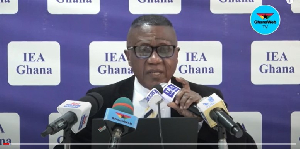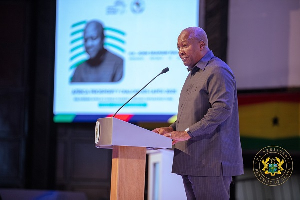The Chief and people of Nangun, a community in the Karaga District of the Northern Region, have appealed to the government to provide them with potable water to undertake household and other activities.
Naa Kwame Abukari, Chief of Nangun, who led his people to make the appeal, said the people of the area spent a lot of time in search of potable water adding providing them with potable water would ensure that they spent the time on other productive activities.
He made the appeal at a social auditing forum at Nangun organized by the Karaga District Directorate of the National Commission for Civic Education (NCCE) to promote community ownership of development projects and policies.
The forum, which brought together duty-bearers, identifiable groups, traditional authorities, youth groups amongst others, was also to increase awareness of the citizenry on the operations of the Assembly as well as empower them to demand accountability from duty-bearers.
It followed the successful conduct of district-wide sensitization activities on the Accountability, Rule of Law and Anti-Corruption Programme (ARAP), sponsored by the European Union, to deepen the knowledge of the citizenry on corruption and accountability.
Social auditing is about integrating all groups of citizens in the decision-making process with particular attention to the vulnerable and the marginalized groups.
Naa Abukari also appealed to the government to construct a Community-based Health Planning and Services (CHPS) Compound in the area to address their health needs.
Other members of the community were not happy that the construction of a road that connected the Nangun community to other towns had stalled.
Mr Ernest Asante Akrasi, Deputy Coordinating Director of the Karaga District Assembly assured the people that their concerns would be channelled to the appropriate authorities for action to be taken on them.
Meanwhile, the NCCE in the Karaga District has also sensitized a number of identifiable groups including traditional authorities, women’s groups, faith-based organizations amongst others from various communities including Pishigu, Nangun, Langogu, Binduli amongst others as part of the second phase of ARAP.
Regional News of Monday, 1 April 2019
Source: ghananewsagency.org

















